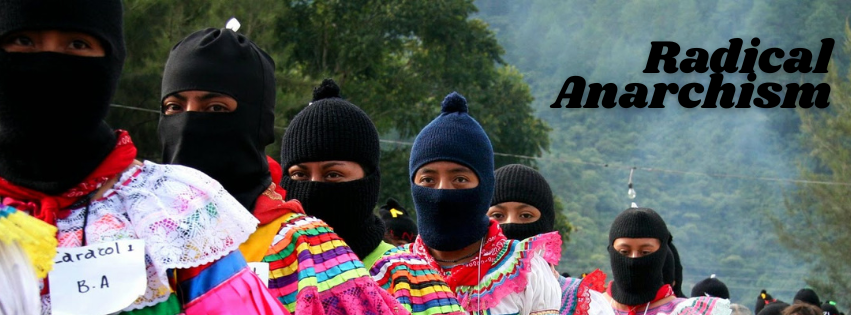Radical Anarchism

Rather than decolonizing anarchism, we radicalize it, returning to the roots, to the foundations that solidarity and co-operation is our natural state, found in the stories of humanity across cultures, mythologies and teachings, religious or otherwise. “Radical simply means 'grasping things at the root.'” according to Angela Davis (Women, Culture & Politics, 2011), and indeed the Mirriam-Webster’s dictionary definition of radical in both verb and noun forms defines radical as having to do with the “root”, “origin”, and “foundation”. In As We Have Always Done: Indigenous Freedom Through Radical Resistance, Leanne Betasamosake Simpson discusses her theory of “radical” resurgence as a return to “Indigenous interrogation, critique, and theory, and the grounded normativity these systems generate….[It] is the process from which grounded, real world Indigenous alternatives are manifest and realized.”
Radical is starting “from a place of refusal of settler colonialism and its current settler colonial structural manifestation. It continues the work of dismantling heteropatriarchy as a dispossesive force. It calls for the formation of networks of constellations of radical resurgent organizing against the dispossesive forces of capitalism, heteropatriarchy, and white supremacy.” (As We Have Always Done: Indigenous Freedom Through Radical Resistance, 2017) Thus, radical anarchism is a return to roots of anarchism as a belief system guiding our theory and practice, devoid of colonialism, devoid of white supremacy, devoid of heteropatriarchy, devoid of capitalism, devoid of authoritarianism, and devoid of what leads to these ideologies - power dynamics.
Radical anarchism builds its tenets and values on this belief system, cornerstoned by innate solidarity, voluntary reciprocity, and interdependent co-operation. While Darwin, Spencer, Kropotkin, and Marx were writing from scientific and anthropological, rooted in white supremacy colonialism, viewpoints about the culture and practices of nature and then by BIPGM, those communities were (are) continually living out the practice of what Kropotkin would come to define as socialism. The suppositions from Kropotkin, Bakunin, and Malatesta, as well as Proudhon, Marx, Darwin, Spencer, and other theorists of the time, regarding the interdependent co-operation of nature for the continued existence of all are birthed from their observations the relationship of BIPGM with nature and the solidarity they observed in those communities and not from their own experiences and beliefs, already tainted by white supremacy and colonialism. They make observations, assumptions, displaced from their origins through intricate power dynamics and in doing so, they fall short of coming to the fullest definition of solidarity. This is why we see Hegel wrongly theorize that the natural social order is not a historical entity or conscious practice. His observations and assumptions of Indigenous beliefs were hindered by colonialism and white supremacy inherent in society and the social sciences of his day. His philosophy falls short of truth because these blinders keep him from being able to grasp the full scope of the natural socialism of existence.
Rather than following in their mistakes, radical anarchism defines solidarity by the roots, centering the inceptive belief system of connectedness.
